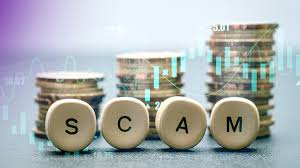Is Forex A Fraud, The foreign exchange market, commonly known as Forex, is the largest and most liquid financial market in the world. With trillions of dollars traded daily, Forex attracts investors, speculators, and traders from all walks of life. However, with its immense popularity and the potential for significant profits, many people ask: Is Forex a fraud?
What Is Forex?
Forex involves the trading of currencies. Participants buy one currency while simultaneously selling another. This trading can be done through brokers, platforms, or banks. The goal for traders is to profit from fluctuations in currency prices. For instance, if you believe the U.S. dollar will rise against the euro, you would buy USD and sell EUR.
Due to the decentralized nature of Forex (there’s no central exchange), it operates 24 hours a day, five days a week, allowing traders to respond to global economic events in real time.
Why Do People Question if Forex Is a Fraud?
The question “is Forex a fraud?” often arises because of misconceptions, unregulated brokers, and scams that have been associated with Forex trading. Here are some reasons behind the skepticism:
1. Unregulated Brokers and Platforms
While many Forex brokers are legitimate and regulated by financial authorities, some operate without oversight. These unregulated brokers can engage in fraudulent activities, such as manipulating prices or refusing to allow withdrawals, leading to losses for traders.
2. Get-Rich-Quick Schemes
Forex is often advertised as an easy way to get rich quickly. Social media is full of influencers and so-called “gurus” promising massive profits with little effort. These promises can lure in beginners who may not fully understand the risks involved in Forex trading. While it is possible to make substantial gains, Forex also carries significant risks, and losses can be equally substantial.
3. Pyramid and Ponzi Schemes
Some scammers use Forex as a front for pyramid or Ponzi schemes. In these cases, they promise high returns from Forex trading but, in reality, are only paying old investors with the money from new investors. Eventually, the scheme collapses, leaving investors with huge losses.
4. Misunderstanding of Market Dynamics
Many beginner traders enter the Forex market without fully understanding how it works. They may not be aware of the complexity involved in currency trading, including economic factors, geopolitical events, and technical analysis. This lack of knowledge can lead to significant losses, and some may conclude that Forex itself is fraudulent rather than acknowledging the high-risk nature of the market.
Is Forex Legitimate?
Forex trading, in and of itself, is not a fraud. It is a legitimate financial market where currencies are traded, just like the stock market or commodities market. However, because of its decentralized and global nature, there are opportunities for bad actors to exploit inexperienced traders.
How to Avoid Forex Scams:
- Choose a Regulated Broker: Ensure that any broker you trade with is regulated by a recognized financial authority, such as the Financial Conduct Authority (FCA) in the UK or the Commodity Futures Trading Commission (CFTC) in the U.S.
- Be Wary of Unrealistic Promises: If someone promises guaranteed profits or risk-free trading, it’s likely a scam. No investment is without risk, especially in a volatile market like Forex.
- Educate Yourself: Before diving into Forex trading, take the time to understand how the market works. Learn about technical analysis, risk management, and economic factors that influence currency prices.
- Avoid High-Leverage Trading: Leverage can amplify gains, but it can also magnify losses. Be cautious of brokers offering extremely high leverage, as this can lead to significant losses if the market moves against you.
Conclusion: Is Forex a Fraud?
Forex trading is not inherently a fraud, but like any financial market, it carries risks. The real danger lies in dealing with unregulated brokers, falling for scams, or entering the market without proper knowledge. By understanding the risks, choosing regulated brokers, and avoiding “get-rich-quick” schemes, traders can participate in the Forex market legitimately and responsibly.
In short, while there are scams related to Forex, the market itself is not fraudulent. It’s essential to stay informed, remain cautious, and approach Forex trading with a realistic mindset.
You Might Also Like These:
Why is a Cyber Recovery Plan Important?
What is Cyber Incident Recovery?
The Essential Guide to Creating a Cyber Recovery Plan (PDF)
Cyber Security Disaster Recovery Plan Template: A Complete Guide
The Role of a Cyber Recovery Worker: Safeguarding the Digital World

